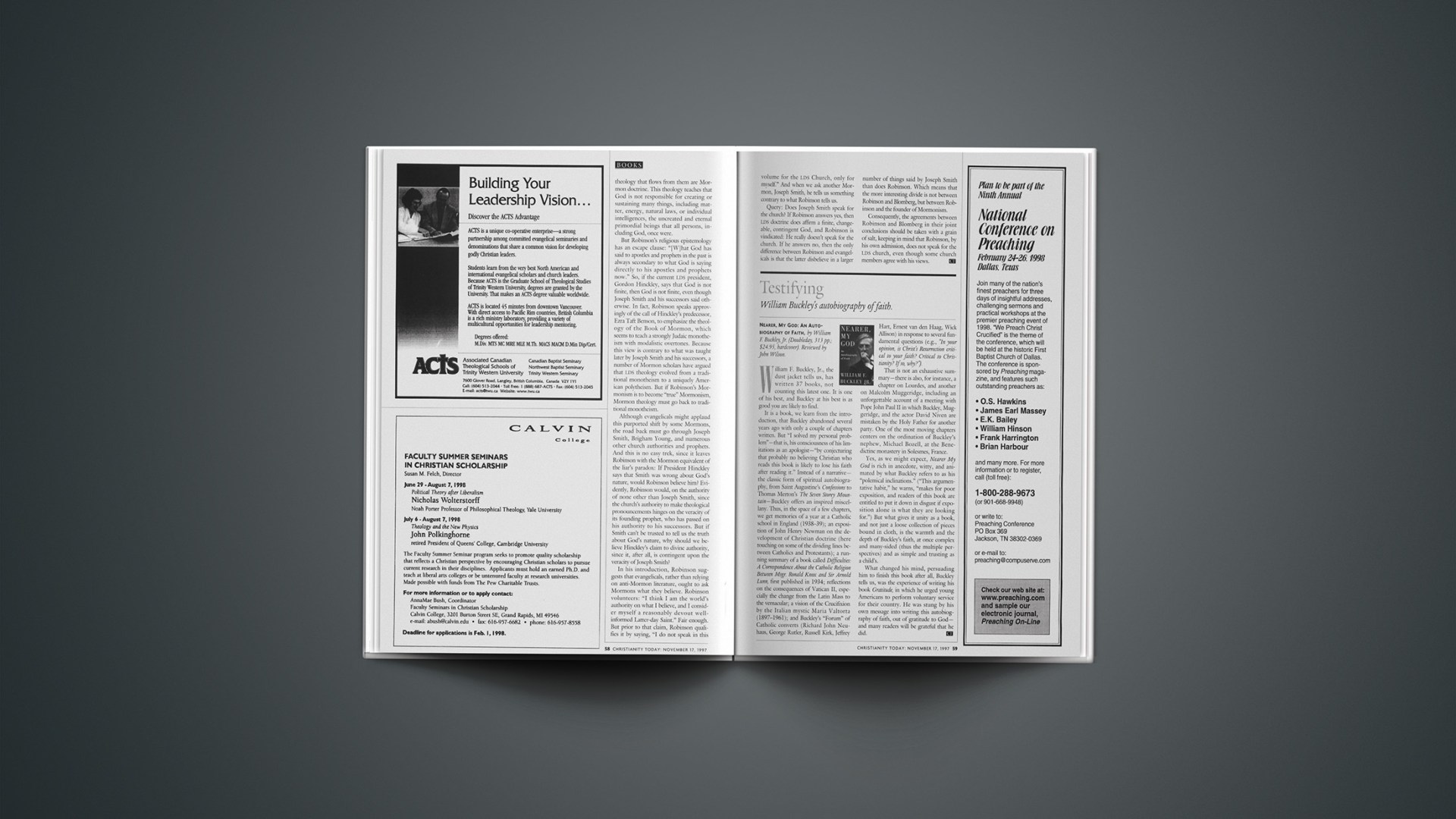Nearer, My God: An Autobiography of Faith, by William F. Buckley, Jr. (Doubleday, 313 pp.; $24.95, hardcover). Reviewed by John Wilson.
William F. Buckley, Jr., the dust jacket tells us, has written 37 books, not counting this latest one. It is one of his best, and Buckley at his best is as good you are likely to find.
It is a book, we learn from the introduction, that Buckley abandoned several years ago with only a couple of chapters written. But “I solved my personal problem”—that is, his consciousness of his limitations as an apologist—”by conjecturing that probably no believing Christian who reads this book is likely to lose his faith after reading it.” Instead of a narrative—the classic form of spiritual autobiography, from Saint Augustine’s Confessions to Thomas Merton’s The Seven Storey Mountain—Buckley offers an inspired miscellany. Thus, in the space of a few chapters, we get memories of a year at a Catholic school in England (1938-39); an exposition of John Henry Newman on the development of Christian doctrine (here touching on some of the dividing lines between Catholics and Protestants); a running summary of a book called Difficulties: A Correspondence About the Catholic Religion Between Msgr. Ronald Knox and Sir Arnold Lunn, first published in 1934; reflections on the consequences of Vatican II, especially the change from the Latin Mass to the vernacular; a vision of the Crucifixion by the Italian mystic Maria Valtorta (1897-1961); and Buckley’s “Forum” of Catholic converts (Richard John Neuhaus, George Rutler, Russell Kirk, Jeffrey Hart, Ernest van den Haag, Wick Allison) in response to several fundamental questions (e.g., “In your opinion, is Christ’s Resurrection critical to your faith? Critical to Christianity? If so, why?” ).
That is not an exhaustive summary—there is also, for instance, a chapter on Lourdes, and another on Malcolm Muggeridge, including an unforgettable account of a meeting with Pope John Paul II in which Buckley, Muggeridge, and the actor David Niven are mistaken by the Holy Father for another party. One of the most moving chapters centers on the ordination of Buckley’s nephew, Michael Bozell, at the Benedictine monastery in Solesmes, France.
Yes, as we might expect, Nearer My God is rich in anecdote, witty, and animated by what Buckley refers to as his “polemical inclinations.” (“This argumentative habit,” he warns, “makes for poor exposition, and readers of this book are entitled to put it down in disgust if exposition alone is what they are looking for.”) But what gives it unity as a book, and not just a loose collection of pieces bound in cloth, is the warmth and the depth of Buckley’s faith, at once complex and many-sided (thus the multiple perspectives) and as simple and trusting as a child’s.
What changed his mind, persuading him to finish this book after all, Buckley tells us, was the experience of writing his book Gratitude, in which he urged young Americans to perform voluntary service for their country. He was stung by his own message into writing this autobiography of faith, out of gratitude to God—and many readers will be grateful that he did.
Copyright © 1997 Christianity Today. Click for reprint information.










